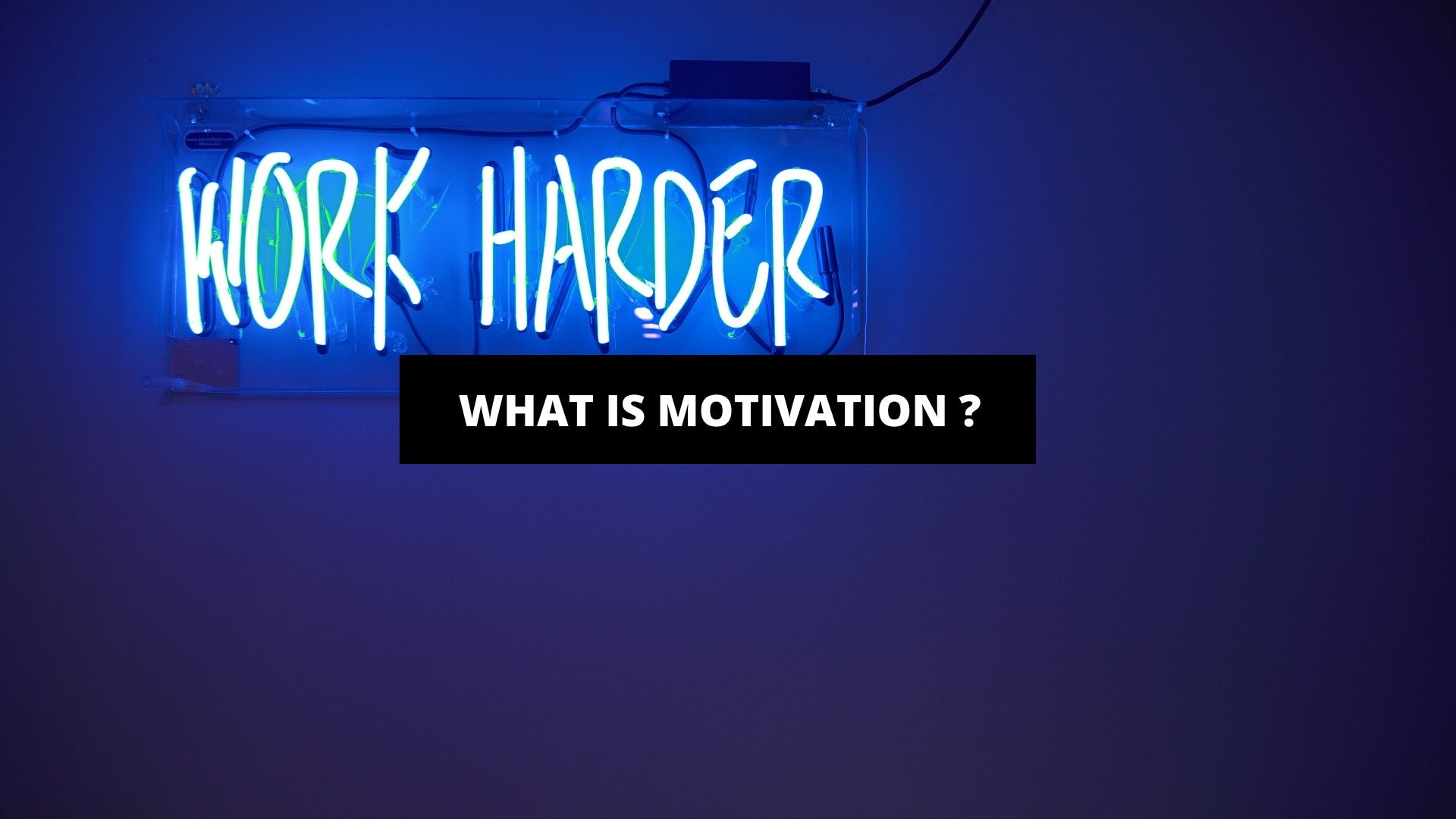Motivation is a psychological concept that refers to the driving force behind an individual's behavior and actions. It is the reason why a person acts in a certain way or pursues a particular goal or outcome. Understanding motivation is crucial as it plays a significant role in our daily lives, influencing our thoughts, behaviors, and emotions.
There are several theories of motivation proposed by psychologists and researchers, including:
- Maslow's Hierarchy of Needs, which suggests that individuals are motivated by fulfilling their basic needs before progressing to higher, more complex needs.
- Herzberg's Two-Factor Theory, which posits that there are two types of factors that affect motivation: hygiene factors (such as job security) and motivators (such as recognition and growth opportunities).
- Expectancy Theory, which states that people are motivated by the belief that their efforts will lead to desired outcomes.
- Self-Determination Theory, which proposes that individuals are intrinsically motivated when their basic psychological needs for autonomy, competence, and relatedness are met.
Several factors can affect an individual's level of motivation, such as:
- Intrinsic vs. Extrinsic Motivation, where intrinsic motivation comes from within, while extrinsic motivation is driven by external rewards or consequences.
- Personal Values and Beliefs, as what an individual values and believes can significantly influence their motivation levels.
- Goal Setting, where setting clear and achievable goals can increase motivation and focus.
To stay motivated, it is essential to:
- Find Your "Why," as understanding the purpose and meaning behind your actions can increase motivation.
- Set Realistic Goals, ensuring that your goals are attainable can help you stay motivated rather than feeling overwhelmed.
- Celebrate Small Wins, acknowledging and celebrating your progress can boost motivation and self-confidence.
- Surround Yourself with Positive Influences, as being around supportive and encouraging people can increase motivation and drive.
- Take Breaks and Practice Self-Care, as self-care and breaks can help prevent burnout and maintain motivation levels.
What Is Motivation?
Motivation is the driving force behind individuals' actions, spurring them to take specific actions and persist in their endeavors to achieve set goals. It is influenced by various factors such as personal drive, external encouragement, and intrinsic desires. Understanding what is motivation is crucial in comprehending human behavior and performance in diverse settings.
A real-life example of motivation is the story of Arunima Sinha, the first female amputee to climb Mount Everest. Her determination and inner drive propelled her to conquer this remarkable feat despite facing immense adversity.
Theories of Motivation
Motivation is a crucial aspect of human behavior, driving us towards our goals and desires. But what exactly motivates us? In this section, we will explore various theories of motivation that seek to answer this question. From Maslow's Hierarchy of Needs to Herzberg's Two-Factor Theory, Expectancy Theory, and Self-Determination Theory, we will delve into the different perspectives and factors that influence our motivation. By understanding these theories, we can gain insight into our own motivations and how to effectively motivate others.
Maslow's Hierarchy of Needs
Maslow's Hierarchy of Needs is a theory proposing that human needs are organized in a hierarchy, with basic physiological needs as the foundation, followed by safety, love/belonging, esteem, and self-actualization as higher-level needs.
Herzberg's Two-Factor Theory
Herzberg's Two-Factor Theory explores workplace motivation, proposing that job satisfaction and dissatisfaction arise from different factors. Hygiene factors, like salary and work conditions, can prevent dissatisfaction, while motivator factors, such as recognition and growth opportunities, boost satisfaction and intrinsic motivation.
Expectancy Theory
Expectancy Theory proposes that individuals are driven to excel when they have confidence that their hard work will result in positive performance, which will then be acknowledged and rewarded. This theory underlines the connection between effort, performance, and results, emphasizing the significance of setting ambitious but attainable goals and offering appropriate incentives for accomplishing them.
Self-Determination Theory
The Self-Determination Theory highlights the importance of intrinsic motivation and the innate psychological needs that drive individuals. It emphasizes the key role of autonomy, competence, and relatedness in fostering motivation.
A young entrepreneur, fueled by his passion for environmental sustainability, established a thriving eco-friendly fashion brand. His commitment to his values and intrinsic motivation were crucial factors in his journey.
Factors That Affect Motivation
Motivation is a complex concept that can be influenced by various factors. In this section, we will delve into the different elements that can impact an individual's motivation. We will discuss the differences between intrinsic and extrinsic motivation, and how personal values and beliefs can play a role in driving motivation. We will also explore the importance of goal setting and how it can affect one's motivation levels. By understanding these factors, we can gain insight into how motivation works and how we can harness it to achieve our goals.
Intrinsic vs. Extrinsic Motivation
- Intrinsic motivation: Involves engaging in behavior because it's personally rewarding, such as finding joy in the task itself.
- Extrinsic motivation: Involves engaging in behavior for external rewards or to avoid punishment, like working for a bonus or to dodge criticism.
Personal Values and Beliefs
Personal values and beliefs are crucial in shaping an individual's motivation. They serve as guiding principles that impact goal setting, decision-making, and the pursuit of success. When personal values align with the tasks and objectives at hand, motivation is often increased.
For example, a person who values creativity and autonomy is likely to feel more motivated in a role that allows for independent work and innovative thinking.
Goal Setting
- Define clear, specific goals to establish direction and purpose.
- Set challenging yet achievable objectives to maintain motivation.
- Break down larger goals into smaller, manageable tasks for progress tracking.
- Establish a timeline with deadlines to create urgency and accountability.
- Regularly review and adjust goals to align with changing priorities and circumstances.
How to Stay Motivated
Motivation is a powerful force that drives us towards our goals and helps us achieve success. But staying motivated can be challenging, especially when faced with obstacles and setbacks. In this section, we will discuss proven methods to stay motivated and keep pushing towards our goals. From finding your "why" to taking breaks and practicing self-care, we’ll explore various strategies to help you maintain your motivation and achieve your full potential.
Find Your "Why"
Discovering your "why" involves recognizing the driving force or purpose behind your actions. This requires introspection and comprehending what truly inspires you, whether it's personal satisfaction, making a difference, or reaching specific objectives.
To find your "why":
- Take time to reflect on your passions and values.
- Consider what brings you happiness and a sense of fulfillment.
- Identify the impact you want to have.
- Set meaningful goals that align with your purpose.
- Seek inspiration from role models or mentors.
Set Realistic Goals
- Define specific and measurable goals to ensure clarity and focus when setting realistic goals.
- Assess your current resources and capabilities to set achievable targets for your goals.
- Break down larger goals into smaller, manageable tasks to track progress and make them more attainable.
- Consider potential obstacles and develop strategies to overcome them and stay on track towards your goals.
- Regularly review and adjust goals to align with evolving circumstances and your ambitions for realistic and achievable success.
Celebrate Small Wins
Celebrating small wins is crucial for maintaining motivation. Recognizing and valuing small achievements can give a feeling of advancement and help to stay on track towards larger goals. It also builds confidence and reinforces positive behaviors, resulting in greater motivation and productivity.
Interestingly, celebrating small wins triggers the release of dopamine in the brain, which further motivates and encourages continued effort.
Surround Yourself with Positive Influences
Surrounding yourself with positive influences can greatly impact your motivation. Engage with supportive peers, mentors, or motivational materials to create a positive environment. Joining a community of like-minded individuals or seeking inspiration from successful figures can also help foster positivity. Additionally, practicing gratitude and mindfulness can aid in maintaining a positive outlook. Taking steps to eliminate negative influences and replacing them with affirmative ones can further enhance your motivation.
Take Breaks and Practice Self-Care
- Set boundaries: Establish clear work hours and break times to take breaks and practice self-care.
- Engage in physical activity: Incorporate exercise or stretches into your breaks to take care of yourself.
- Practice mindfulness: Use meditation or deep breathing exercises to relax and prioritize self-care.
- Socialize: Connect with friends or colleagues during breaks to take a break and focus on self-care.
- Pursue hobbies: Engage in activities you enjoy to recharge and prioritize self-care.
Frequently Asked Questions
What is motivation?
Motivation is the driving force behind human actions, and it is the process that initiates, guides, and maintains goal-oriented behaviors. It includes biological, emotional, social, and cognitive forces that activate human behavior.
What are the different types of motivation?
There are two main types of motivation: extrinsic and intrinsic. Extrinsic motivation comes from external rewards, while intrinsic motivation comes from within. A third type of motivation, known as family motivation, has also been suggested.
How does motivation affect our everyday lives?
Motivation plays a significant role in our everyday lives as it helps individuals set and achieve goals, and it can also lead to increased productivity and success. It is a complex blend of internal and external factors that can influence our behaviors.
What are some factors that can impact motivation?
Motivation can be influenced by a variety of factors, including internal pushes such as self-motivation levels and power motivation, as well as external pulls like social recognition and avoidance of pain. Secondary motives, such as solving a problem or completing a complicated crossword puzzle, can also drive motivation.
How do professionals ensure the accuracy of information about motivation?
The information about motivation is typically reviewed by board-certified physicians and mental healthcare professionals to ensure accuracy and reflect the latest evidence-based research. Additionally, articles and talks by experts, such as a TEDx talk by psychology educator and author Kendra Cherry or a podcast featuring psychotherapist and international bestselling author Amy Morin, have gone through an editorial process to ensure quality and accuracy.
What are some ways to improve motivation?
To improve motivation, individuals can set specific and achievable goals, use positive self-talk, and seek support from others. Intrinsic motivation, driven by personal satisfaction, is often seen as more beneficial than extrinsic motivation, but both can be effective in different situations. Additionally, family motivation, the desire to provide for and support loved ones, can also play a significant role in an individual's motivation.


How To Bedroom Decoration ?
How To Decorate A Large Wall In Living Room ?